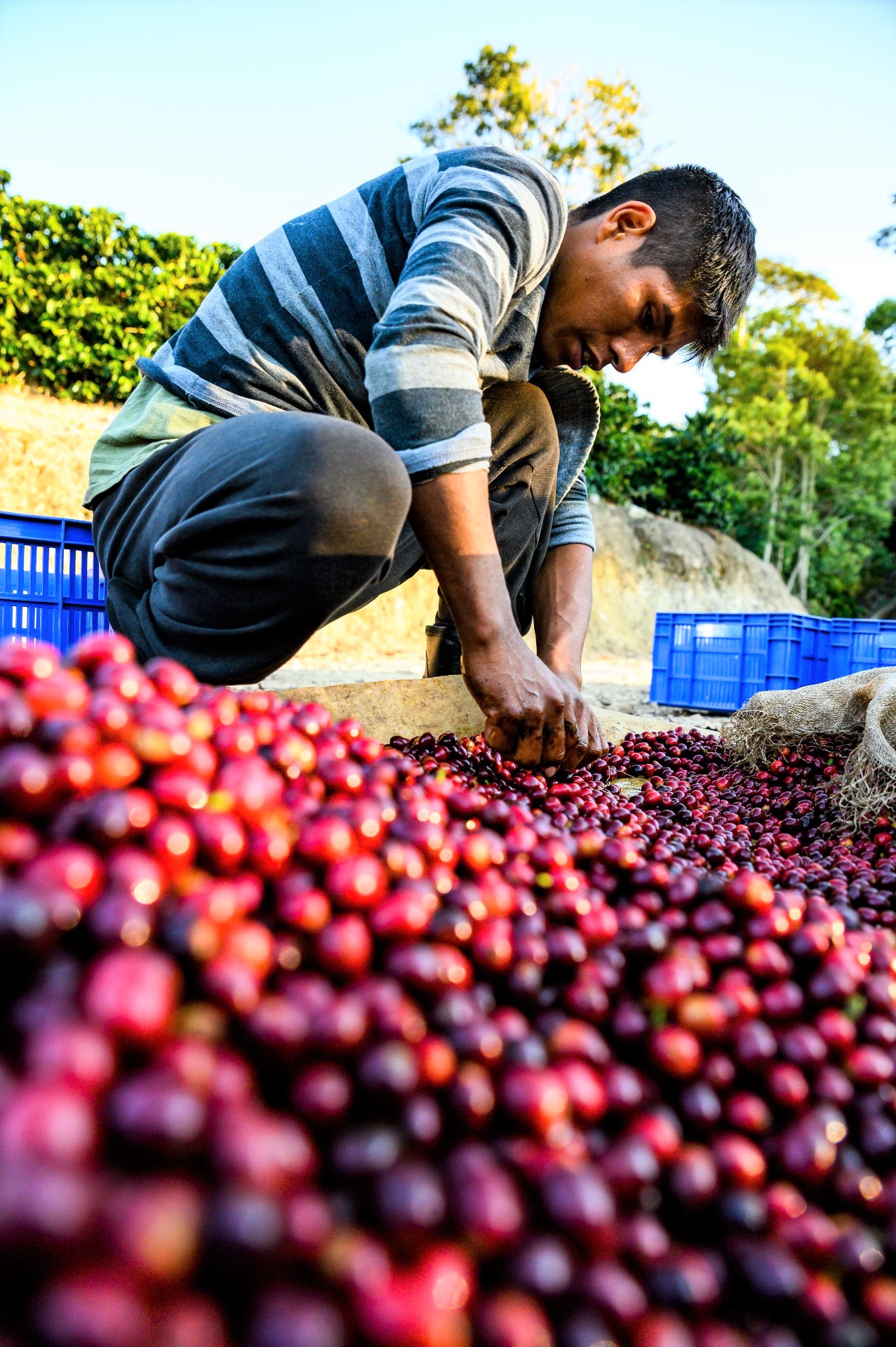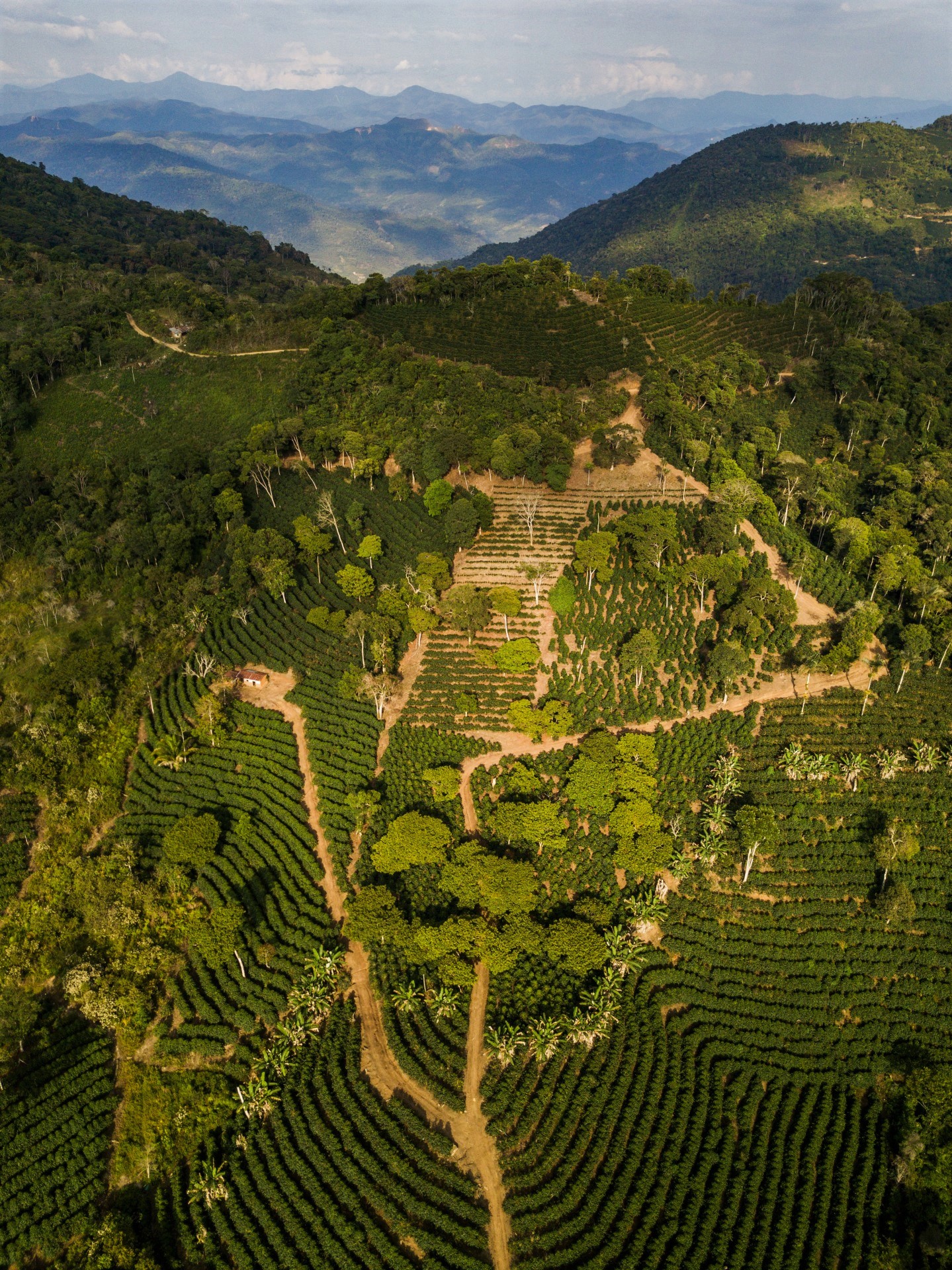Crown Jewel Bolivia Caranavi Rodriguez Family Java Fully Washed – 1 Lb
Bags 0
Warehouses Oakland
Please Note this is a 1 LB bag of unroasted, green coffee.
Out of stock
About this coffee
Grower
Finca La Linda
Altitude
1450 - 1550 masl
Variety
Java
Soil
Clay minerals
Region
Caranaví, La Paz, Bolivia
Process
Fully washed, mechanically dried
Harvest
June - September 2020
Certification
Conventional
Coffee Background
Specialty groups like AGRICAFE deserve a lot of credit for their dedication to Bolivia's coffee potential, despite the odds. AGRICAFE was established in 1986 and is a family business that manages 12 of its own farms as well as smallholder coffee from across Caranaví and Samaipata. Their smallholder program, “Sol de Mañana”, began in 2013 with 10 small producers and a curriculum focused on nursery and farm management, and specialty harvesting. It currently has 100 contributing farms and average production has increased from 3 bags per hectare to more than 20, with qualities better each year.
La Linda is AGRICAFE’s first farm, established in 2012. Up to that point, AGRICAFE had been exclusively buying and processing coffee from surrounding small farms. La Linda became a point of innovation and best practices for the Caranaví coffee community, and its techniques are where the “Sol de Mañana” program originated. The farm is 10 hectares, 30% of which remains a natural reserve. “Java”, so-named for the original heirloom variety brought to the Americas from the Indonesian island of Java, was the inaugural variety used to populate the farm and remains dominant at La Linda. The Rodriguez family, founders of AGRICAFE, believed the specific climate of Caranaví was perfect for this variety. To process La Linda’s coffee, 150 pickers are employed. Cherry is depulped and fermented for 60 hours, and then dried in slow-rotating mechanical drums.
Bolivia is South America's only landlocked coffee producing country, and is the smallest exporter of coffee on the continent. The quality of that coffee, however, is hardly lacking in diversity or beauty. Bolivia’s terrain and geography is gifted for arabica production, particularly throughout its greater Yungas region (Yungas is Aymara for "warm lands"), whose mountain ranges connect the low and humid Amazonian basin to the dry Andean altiplano above.
The most productive municipality in the Yungas is by far Caranaví, where 85-90% of Bolivia's specialty coffee has continued to thrive over the decades. Caranaví's landscape is steep, cloudy, rugged, and remote, with natural forest making up more than 90% of the territory. Coffee farms in this high and tropical climate tend to be well-managed but small, challenged by isolation and lacking in long-term industry support. Bolivian growers still often don’t have processing equipment or transportation of their own, a massive hurdle in such territory.
Biodiversity, soil health, elevation, and progressive leadership in AGRICAFE all work undeniably in coffee’s favor. Yet, facing each and every Bolivian coffee, especially the best ones, is one of the most strenuous overland transits in the coffee world, passing elevations of 4000 meters over the top of the Andes and west to the port of Arica on Chile’s coast. The country’s low production, select few producer groups in the specialty game, and formidable logistical challenges, means each and every arrival is something to be cherished.




